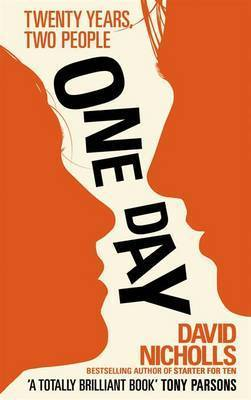Do Video Games Lead to Violent Behavior?
VIDEO GAMES ARE NOT TO BLAME
James Kavanagh
Is playing violent video games like Grand Theft Auto 4 a harmless hobby or a contributing factor to violence and aggression? This is a question that has been raised in light of many recent mass shootings. In my opinion, video games are not linked to violent actions in the average person. The average gamer can differentiate between reality and fantasy and is therefore not likely to be driven to violence after playing video games.
It is true that many of the perpetrators of recent mass shootings were players of violent video games; however, the anti-video game crowd seems to ignore the fact that these alleged criminals suffered from mental illness. Instead of blaming video games as the only reason a person resorts to acts of mass violence, why not make the connection between mental illnesses and video games?
The average psychological healthy teen will not be influenced by video games to commit violent acts in real life. Susan Perry of the Minn Post stated, “Several decades of research on the topic has found no clear evidence linking video games, even notoriously brutal ones like Call of Duty or Grand Theft Auto, to outbursts of violence.” This lack of research should influence the media to avoid placing the blame on video games as the only factor contributing to one’s violent actions. We should consider that there are multiple factors that contribute to a person’s decision to resort to violence, such as serious mental illnesses paired with access to an arsenal of deadly weapons. When analyzing the impact of violent video games on aggressive behavior, Pete Etchells of The Guardian said, “Until there is more definitive evidence, it doesn’t seem right to imply that there is a clear and known effect. And it certainly isn’t right to tenuously highlight links between video game use and violent behavior whenever it is vaguely possible to do so.”
The Grand Theft Auto series has sold millions of copies. Grand Theft Auto 5 has already sold over 29 million copies in its first month since its release. Call of Duty Black Ops 2 has sold 12 million copies. Clearly, there haven’t been millions of people committing mass shootings and other murders. Yes, crimes happen, and some are committed by people who have a history of playing violent video games, but the vast majority of players don’t commit violent crimes.
Witnessing people being killed in video games is not the sole factor influencing violent behavior. Violence has always existed in our society, even if it is seems to be more prevalent now. While the average person isn’t influenced by violent video games, there are some people who shouldn’t play them, especially very young children.
In August of this year, an eight-year old boy shot and killed his grandmother soon after playing Grand Theft Auto 4. I think it would be irresponsible to ignore the possibility that he was influenced by the video games. I also think that video games do cause violent behavior in people with certain mental illnesses, but overall, I think that it is foolish to blame video games as the only reason certain people commit violent crimes. Most sane people who play violent video games will most likely never commit a violent crime in their life. More research needs to be conducted to identify alternative reasons why some people commit deadly and violent acts. Banning violent video games won’t fix the problem.
Violent Video Games Increase Real Violence
Emma Jablow
In August of this year, an eight-year-old boy was convicted of shooting his grandmother in the back of the head. Investigators discovered that the boy had been playing the notoriously violent video game Grand Theft Auto IV before the shooting. Child psychologist Kristopher Kaliebe claimed that the game may have promoted aggressive behavior in the child because he was “practicing shooting at a human being” prior to shooting his grandmother.
Are some instances of violence related to playing violent video games? How are violence and video games related? As video games continue to gain popularity, researchers and psychologists have attempted to answer these questions.
Video game players, or “gamers,” have often been stereotyped as anti-social loners or worse – vicious killers. Adam Lanza, the man who murdered twenty kindergarteners and six teachers at Sandy Hook Elementary School in December of 2012, was apparently obsessed with video games. He was fascinated by games involving warfare, and he surrounded himself with weapons, including more than 1,600 rounds of ammunition, eleven knives, and three samurai swords. Though his interest in violence and war may not have been caused by his attraction to video games, the video games most likely increased his urge to kill.
Anders Behrin Breivik, the Norweigan man who killed sixty-nine people at a youth summer camp in Norway in 2011, was also reportedly hooked on violent video games. Breivik was said to have played World of Warcraft for sixteen hours a day before giving it up for Call of Duty: Modern Warfare. Breivik declared that he used Call of Duty to practice his rifling skills.
Protagonists in video games are able to commit acts of violence without getting caught, which might send mixed messages about violence and its consequences to impressionable children. Video games offer violence as an acceptable way to solve problems. In 2003, Devin Moore was arrested and charged with grand theft auto. At the police station, the eighteen-year-old grabbed a pistol from one of the officers and fatally shot two officers and one dispatcher. He had never had any experience with weapons prior to this incident. After his arrest, Moore stated, “Life’s a video game. You’ve got to die sometimes.” Prior to this shooting, Moore had spent many hours playing the game Grand Theft Auto, which might have influenced him enough to think that he could imitate the characters without any consequences.
According to Benedict Carey of the New York Times, psychologists at Brock University in Ontario determined that high school students who are exposed to violent video games for long periods of time exhibit more incidents of aggression than students who do not occupy their time with violent video games. Carey also stated that “a dose of violent gaming makes people act a little more rudely than they would otherwise, at least for a few minutes after playing.” After prolonged exposure to violent video games, rudeness might develop into aggression or something much worse, like murder.
As the popularity of violent video games increases, researchers and psychologists are beginning to examine the correlation between real-world violence and video game violence. They have discovered that violence in video games is a powerful influence in the lives of both children and adults. Violent video games send negative messages about violence and its consequences and can increase aggression in gamers. Researchers have also discovered that mass shootings, such as Sandy Hook, can be linked to violent video games.
Next time you reach for the controller, remember that your innocent hobby could have adverse consequences.
















